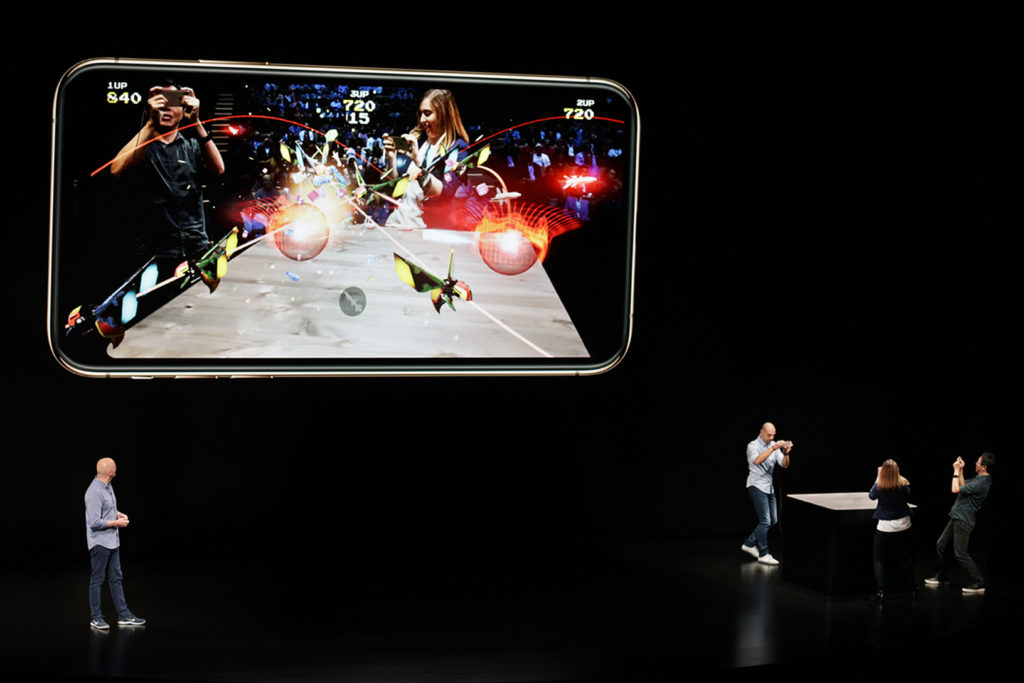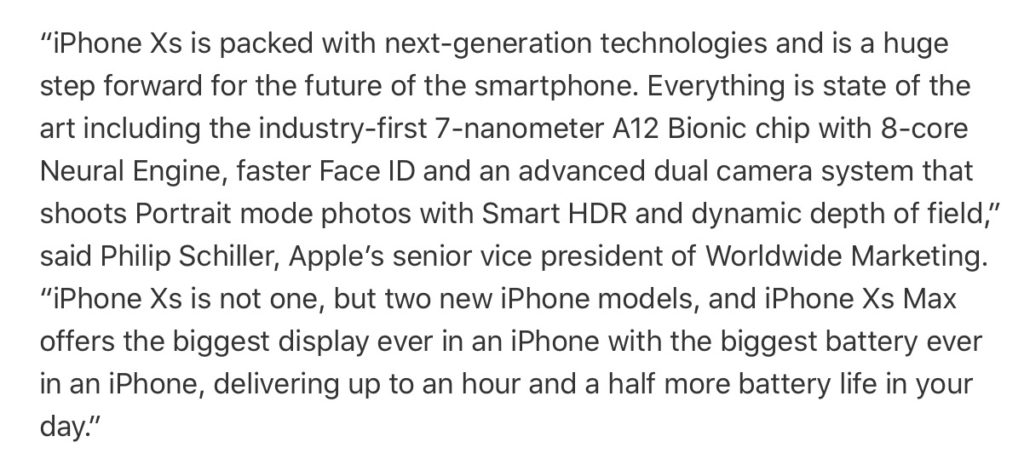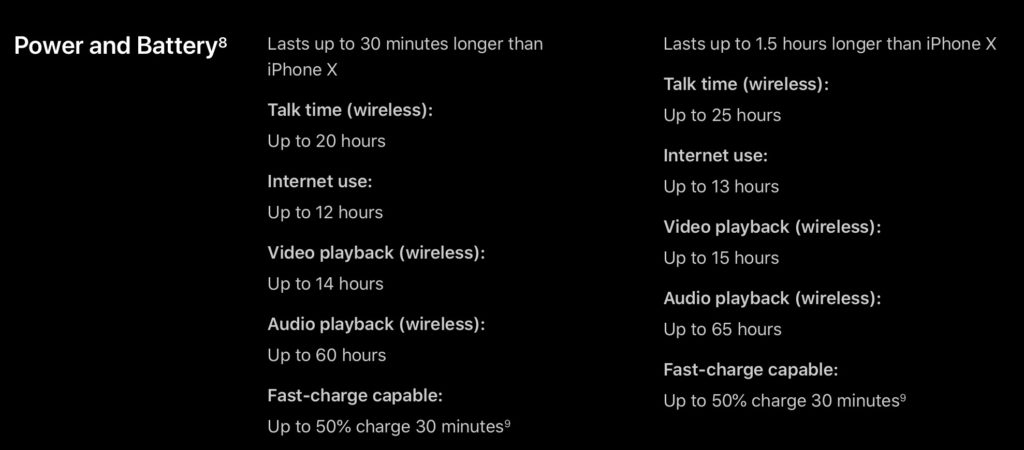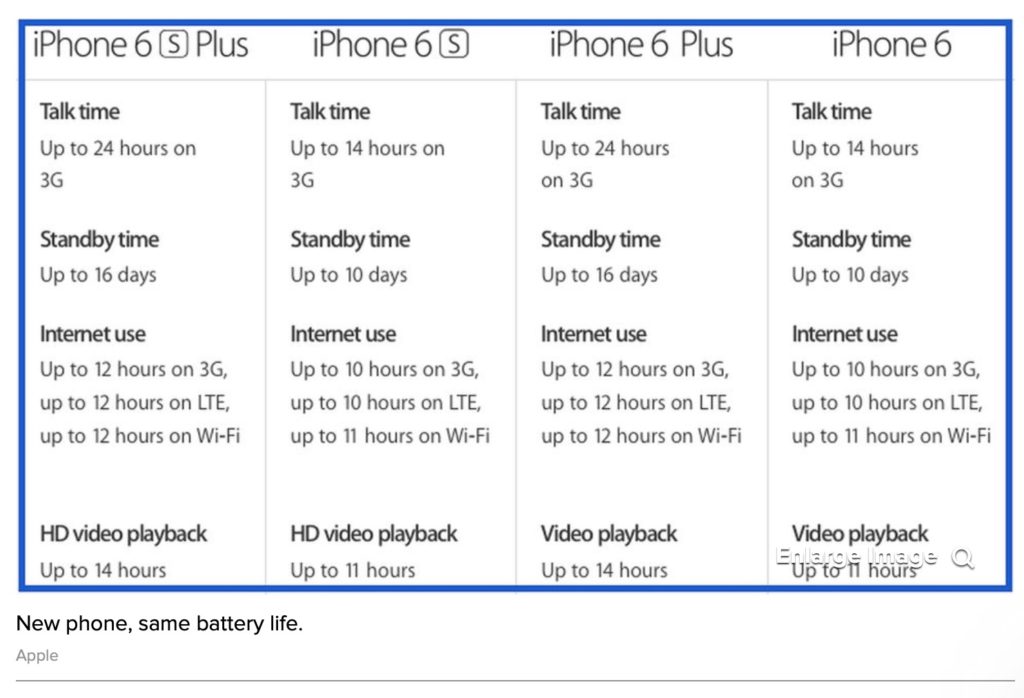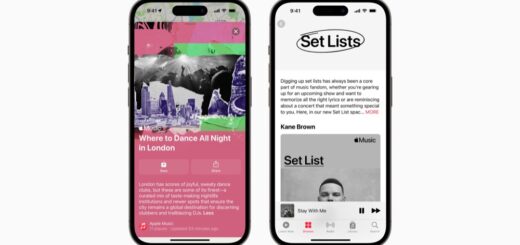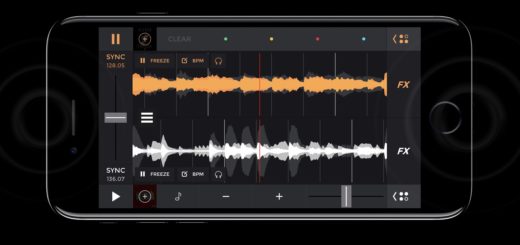Can anyone out there tell me how much battery life Apple claims the iPhone XS delivers?
One thing that annoyed me during the iPhone 2018 range launch was how Apple became so totally self-referential about battery life. I thought someone should, you know, translate those claims for the world. I thought I’d try to tell you how much battery life Apple claims you can expect from its fabulous new devices. I’m sad to say that I can’t do this.
Setting clear expectations?
When it comes to battery life claims, Apple chose to be opaque, rather than straight up: “The battery in the iPhone XS will last 30-minutes longer than that of the iPhone X,” Apple’s marketing chief Phil Schiller said when introducing the company’s rather fab product.
Why on Earth did Apple choose this opaque way to reveal such an important claim?
Why did it choose to refer to a metric such as this in such an incredibly self-referential way? After all outside of the cognoscenti, who actually knows how much battery life you get in an iPhone X? I don’t think many people do – I just think most people get pissed when they run out of power when they still need more.
What about the Apple website? Does it make battery life any more visible there? Perhaps the press release will help us? It doesn’t:
Up an hour and a half more than what?
Eager for clarity, I explored the Apple website for a little more insight:
As you can see, when it comes to actual numbers, Apple continues to be rather more opaque than I like to see. We’re told the iPhone XS will give us “up to” 30 minutes “longer” than an iPhone X. We’re told to expect “up to 1.5-hours more” than iPhone X on an iPhone XS Max.
I’ve got no reason to believe Apple is being obtuse about this – the company always seems to try to exceed any expectations it sets. However, none of these claims make any sense at all in the absence of any information about the reference metric, in this case the iPhone X.
So, what did Apple claim about iPhone X battery life?
It’s hard to say. In part this is because the company no longer sells an iPhone X, so marketing pages referencing the product are much harder to find on its site. It’s also true that Apple does not provide data concerning its now deleted product in a way that’s easy to find when reading about its new ones.
When you dash across to the Apple PR site, you’ll find the press release announcing iPhone X in 2017 makes no reference to battery life, though we do know that the batteries in these phones deliver:
- iPhone XS – 2800 mAh
- iPhone XS Max – 3400 mAh
- iPhone X – 2716 mAh
You can compare battery life using a note on Apple’s website here.
This lets you compare models, but as you can see the company has chosen to explain battery life with yet another trip down self-referential street. This tells us the iPhone XS lasts up to 30-minutes longer than an iPhone X, the XS Max delivers up to 1.5-hours more, and the iPhone X delivers…”up to two hours than the iPhone 7”.
Regular readers of my work will know that I love Apple, but I’m now in a position in which in order to figure out how much battery life I can expect from the latest $1,000+ product I must refer to product claims the company made for a device it launched two years ago. I just don’t think this is a very transparent way of telling me important things.
I went to check the iPhone 7 claims. I got this:
Oh dear. Let’s check that model then:
Oh. A dead end.
I now know that the iPhone XS will last up to 30 minutes longer than an iPhone X, which will itself last up to two hours longer than an iPhone 7, which (we are told) will last up to two hours longer than an iPhone 6S. This looks like progress. And how long does an iPhone 6S last? Apple’s answer: “-“.
I am sure the answer is available somewhere on the Apple site, but this has already become a question that’s too complex for most consumers to explore. There are other questions, too: What does “up to” actually mean? What does “longer” mean, for that matter? How can those claims be of any relevance in the absence of data on the reference object?
[amazon_link asins=’B01GXAT0BK’ template=’ProductCarousel’ store=’9to5ma-20′ marketplace=’US’ link_id=’ddb01c99-b9dc-11e8-9f12-6131fc856436′]
I realize battery life is a sensitive matter, but it seems a bit of a shame that in order to find a unit of measurement that will help me understand Apple’s claims I need to dig out obscure things like this Cnet report.
That report tells me to expect “up to 14 hours” talk time on 3G (as the below image I grabbed from Cnet who grabbed it from Apple shows).
Which suggests I’ll get just over 18-hours talk time on an iPhone XS – though Apple claims up to 20-hours. AppleInsider, meanwhile, has these claims.
The problem (for me) is that in the absence of transparent claims around what to expect I cannot actually tell you what the battery life will be.
I have to admit all of this data (and the lack of reference points for that data) leaves me a little confused. Added to which, the only time battery life really matters is when it runs out. Which is fine, I guess, except for when you are in a life or death situation.
And who would rely on a mobile device then?
Turn it up to eleven.
